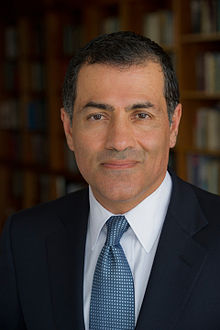One Reason CIA Is Claiming Drone Emails Are Top Secret: ACLU’s FOIA
The NYT has a really helpful description of the emails to Hillary that intelligence agencies are claiming are Top Secret. It explained how several of the emails almost certainly couldn’t derive from the intelligence the agency claimed they came from, such as this one on North Korea.
The fourth involved an email sent by Kurt M. Campbell, the assistant secretary of state for Asian affairs, shortly after a North Korean ballistic missile test in July 2009. The email has not yet been made public, even in redacted form, but the State Department has challenged an assertion from the National Geospatial-Intelligence Agency, which gathers data through satellite images, that the email included information that came from a highly classified program.
In a letter this past Dec. 15 to Senator Bob Corker, the Tennessee Republican who is chairman of the Senate Foreign Relations Committee, a State Department official said that the information could not have been based on N.G.A.’s intelligence because Mr. Campbell did not receive any classified intelligence briefings for what was a new job for him until a few days after the North Korean test.
I believe the NGA was dawdling on signing a sworn declaration about this email, unlike the CIA (whose Martha Lutz has signed her name to many a wacky claim).
Unsurprisingly, the NYT reports that the bulk of the emails in question pertain to the drone program, specifically in Pakistan.
The Obama administration’s decision to keep most internal discussions about that program — including all information about C.I.A. drone strikes in Pakistan — classified at the “top secret” level has now become a political liability for Mrs. Clinton’s presidential campaign.
[snip]
Several officials said that at least one of the emails contained oblique references to C.I.A. operatives. One of the messages has been given a designation of “HCS-O” — indicating that the information was derived from human intelligence sources — a detail that was first reported by Fox News. The officials said that none of the emails mention specific names of C.I.A. officers or the spy agency’s sources.
The government officials said that discussions in an email thread about a New York Times article — the officials did not say which article — contained sensitive information about the intelligence surrounding the C.I.A.’s drone activities, particularly in Pakistan.
The officials said that at least one of the 22 emails came from Richard C. Holbrooke, who as the administration’s special envoy for Afghanistan and Pakistan would have been intimately involved in dealing with the ramifications of drone strikes. Mr. Holbrooke died in December 2010.
Reading these passages and the article in general made me realize something: The reason the CIA is insisting these are classified is almost certainly because of the ACLU’s two FOIAs for drone information. In the Awlaki-focused one, the ACLU (and NYT) succeeded in arguing that past public statements from people like Leon Panetta constituted a waiver of the classification of the CIA’s involvement in the program. Any public dissemination of other official Administration figures discussing the drone program would provide ACLU another opportunity to go to the judges in these cases and demand further disclosure about CIA’s involvement in the drone program.
Over the years, the Obama Administration has gone to great lengths to defeat the ACLU in its various FOIAs, from having National Security Advisor Jim Jones get involved in the torture FOIA to delaying congressional oversight into the Awlaki killing. Here, it appears they’re even willing to damage Hillary’s campaign to serve as the inheritor to Obama’s legacy to thwart the ACLU.

